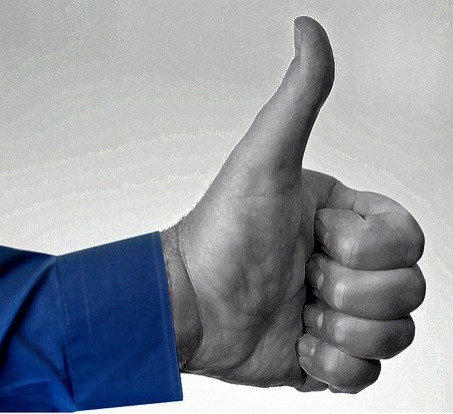Why Facebook Needs A Want Button
OPINION

Facebook already knows what you Like. Soon, it may ask you what you Want.
Tom Waddington, a Web developer for the craft website Cut Out + Keep, discovered on June 28 that Facebook had included code for a disabled Want button within the Javascript of its list of social plug-ins.
The code was released to the Facebook Javascript SDK on Wednesday, Waddington told Mashable. I keep track of the changes to the file.
The Want button code was disabled within the Javascript, which explains why no Want feature is currently listed on Facebook's list of social plug-ins, but Waddington said that the button would work with Open Graph projects with the tag products. Open Graph, for those that don't remember, was unveiled at the f8 Conference last September as a completely new class of apps that allow users to share what they're doing with each other and invite them to join in on the fun without being overwhelming.
We think that Open Graph creates a great opportunity to rethink the way we discover and read news, said Facebook CEO Mark Zuckerberg.
Zuckerberg alluded to the Want button back in September, when he mentioned that the Open Graph would allow Facebook users to perform actions besides just Liking things. Facebook explains how it works on its Developer Blog.
Open graph allows apps to model user activities based on actions and objects. A running app may define the ability to 'run' (action) a 'route'(object). A reading app may define the ability to 'read' (action) a 'book' (object). A recipe app may define the ability to 'cook' (action) to a 'recipe' (object) ... As users engage with your app, social activities are published to Facebook that connect the user with your objects, via your actions.
Want Button: Serving Companies, Serving Facebook
Facebook's Open Graph API currently allows for any developer to create buttons for verbs, so theoretically, third-parties could create Want buttons. But if Facebook officially endorsed the Want button itself, it would not only benefit the advertisers and companies that regularly leverage the social network for business, but it would also make Facebook significantly more valuable.
Long before Facebook hit Wall Street in May with a thud, financial analysts and investors have voiced their skepticism towards Facebook's ability to make money and generate meaningful ad revenue. Even though Facebook has introduced a few new meaningful programs since that disappointing IPO -- including in-app subscriptions for developers and the move from Credits to local currency -- investors need more convincing.
A Want button would help Facebook get back into Wall Street's good graces. By opening up an API for a Want button, companies will be able to more accurately gauge the interest in a given product, whether it's already released or still upcoming. For instance, car companies don't know if Facebook users simply Like their products or regularly buy their products. A Want button would let users share what they're really craving.
Companies would love to see exactly how many people intend to buy a product (a book, a shelf, an item of clothing, etc.), but creating a Want button would also give Facebook a massive new set of user data about purchasing intentions. If Facebook could distinguish between what we Like and what we Want, the platform could create more targeted advertisements for items we actually do want to buy, instead of just guessing based on our general interests.
It's incredible that adding a simple plugin could change the landscape of Facebook, but adding a Want button would do exactly that. Facebook has always been a marketplace of ideas, but now that the company has moved to real currency and in-app subscriptions, Facebook has finally grown up to the extent that it's ready to move from becoming a marketplace of ideas to an actual marketplace of things. It's already proven that friends' suggestions are more powerful than plain advertisements; if Facebook can successfully streamline a Want button, it will be one step closer to realizing its true potential as a one-stop-shop for all social and consumer needs.
© Copyright IBTimes 2025. All rights reserved.




















